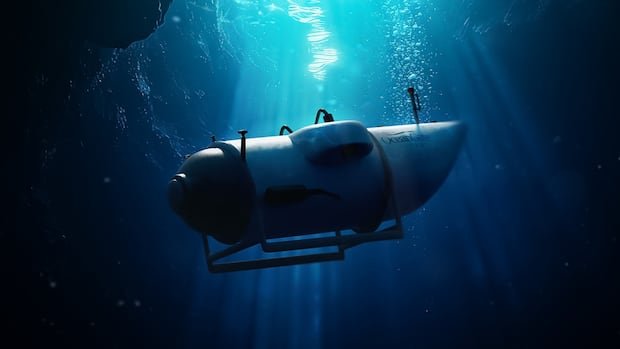Two years following the tragic implosion of the Titan submersible, the United States Coast Guard has unveiled the findings of its investigation. The documentary “Implosion: The Titanic Sub Disaster” documented the inquiry. View it now on CBC Gem.
The final report from the United States Coast Guard Marine Board of Investigation has been released regarding the company responsible for the operation of the Titan submersible, which collapsed two years ago while attempting a dive to the Titanic wreckage, resulting in the loss of all five crew members.
According to the report released on Tuesday, the board discovered that OceanGate had neglected safety engineering protocols, testing procedures, and vessel maintenance. The 335-page document also pointed out issues with the company’s operational practices, organizational culture, and the necessity for enhanced regulatory supervision for manned submersibles and novel vessel designs.
The report mentioned that OceanGate had avoided regulatory scrutiny by using intimidation tactics, making allowances for scientific operations, and relying on the company’s positive reputation before the incident occurred. The investigation revealed that OceanGate had circumvented established deep-sea protocols by exploiting regulatory confusion and oversight challenges, ultimately leading to the operation of Titan outside the usual safety standards for commercial submersibles.
The implosion of the Titan submersible on June 18, 2023, which resulted in the loss of all crew members including OceanGate CEO Stockton Rush, British billionaire explorer Hamish Harding, father and son Shahzada and Suleman Dawood, and Titanic researcher Paul-Henri Nargeolet, prompted an international search and rescue effort.
Jason Neubauer, the chair of Titan MBI, stated that the deaths could have been prevented and emphasized the need for stronger oversight and clearer guidelines for operators exploring new concepts outside existing regulatory frameworks. The report identified multiple contributing factors to the tragedy, offering valuable insights to prevent similar incidents in the future.
The primary causal factors identified in the report were the company’s failure to address engineering concerns and a lack of understanding regarding the vessel’s hull behavior in hazardous environments. The report also criticized OceanGate’s flawed safety culture and operational practices, emphasizing the discrepancies between written safety protocols and actual implementation.
The U.S. Coast Guard highlighted missed opportunities for government intervention before the tragedy, citing a 2018 OceanGate whistleblower and inadequate communication between regulatory bodies. The report made 17 recommendations, including the establishment of an industry working group to update safety standards for submersibles and advocate for expanded federal requirements for regulatory oversight.
Additionally, the report called for mandatory communication protocols and emergency response plans for submarines and submersibles conducting commercial or scientific operations. It emphasized the importance of notifying local U.S. Coast Guard officers about dive plans and emergency protocols.

